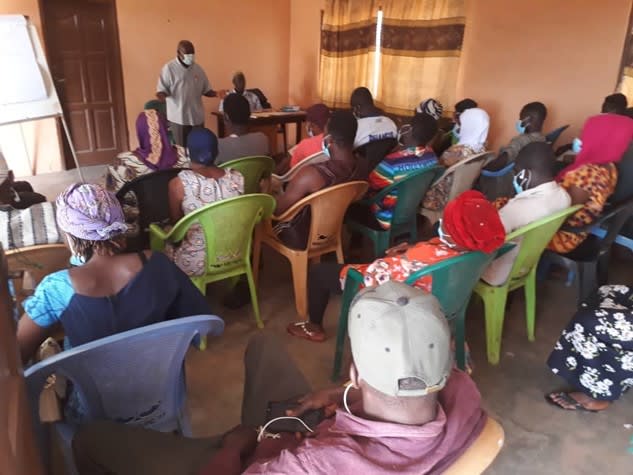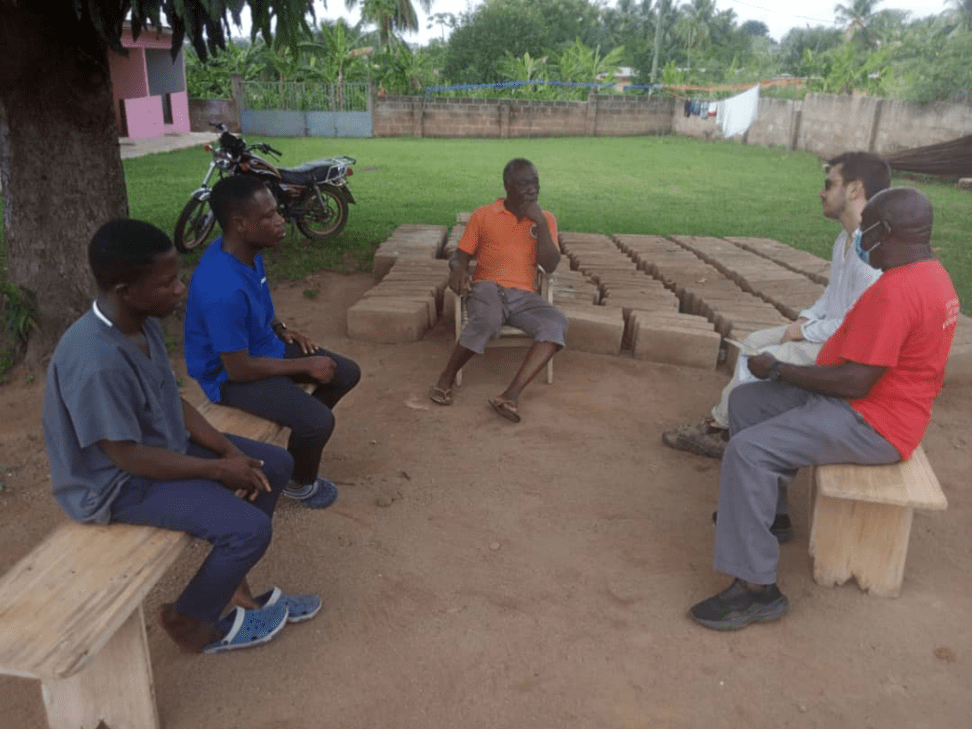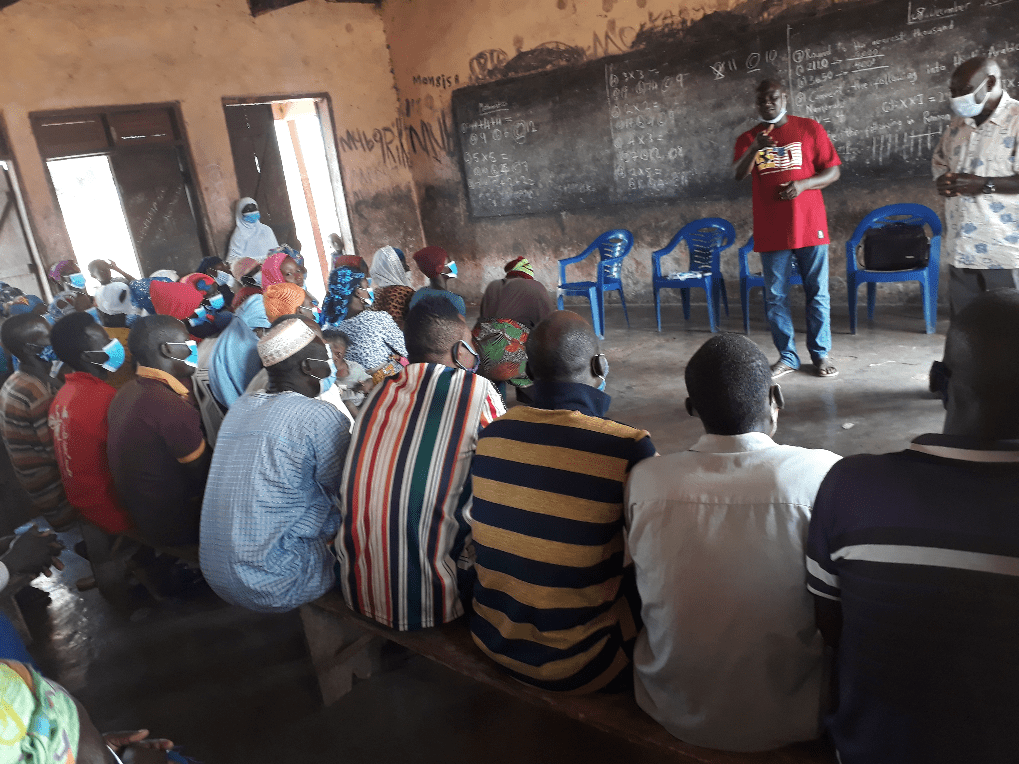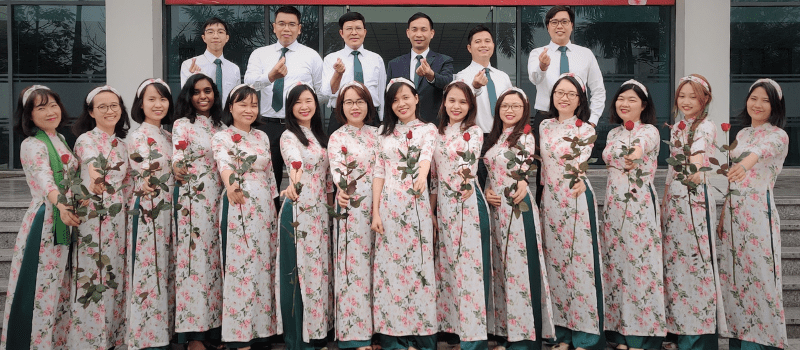At Veterinarians Without Borders/Vétérinaires Sans Frontières, volunteers enable us to implement our work, worldwide. They provide essential services, advocate for causes, and bring positive change to our society. With volunteers in seven countries, including Canada's remote North, we are proud to team up with such caring individuals who are dedicated to improving the lives of animals and communities, along with the environment.
Meet one of our incredible volunteers, Dr. Joseph Ansong-Danquah, who has been volunteering in Ghana through our VETS program!

Joseph providing a training session in Zabzugu District for community groups on animal production.
1. What inspired you to volunteer at VWB/VSF?
I have been with the Canadian Food Inspection Agency for many years, and when I retired, I found myself as a retired veterinarian who didn’t know where to go. I then searched for a volunteer organization through which I could use my services and expertise to serve the society. Shortly after, I was made aware of Veterinarians Without Borders through the New Brunswick Veterinary newsletter, as they were recruiting volunteers to serve in developing countries. I submitted my application and was selected to go to Ghana.
One of the projects in Ghana was to prepare two training manuals on small ruminants and backyard poultry. As a volunteer, I made a commitment to use my expertise, knowledge, and experience to train rural small holder farming communities in animal production. And, that is what inspired me to join Veterinarians Without Borders. I have never looked back since I started volunteering for this organization, and I have been returning every year to Ghana to serve the communities, except during the COVID-19 pandemic period.
2. Why is supporting animal health important to you?
Supporting animal health is important to me because animal health is interrelated with environmental and human health. In our society, many depend on animals as pets, as part of our families, and also as a healing for the sick. In many instances, lovely animal pets visit nursing homes, children’s hospitals, and other in-family facilities to cheer patients who are under stress in health care units. These animals that are healthy have impact on the health of humans, as well as the environment.
In livestock populations, animals graze the land and fertilize it at the same time, bringing nourishment to the environment, hence keeping it healthy. Livestock also give us sustenance to keep us healthy and provide financial gains to help us maintain a healthy living. So, since those three components; animal health, environment and human health are related, it is important to keep our animals healthy as it has a direct impact on human health. Supporting animal health has a very positive impact on improving animal production, as well as the livelihood of rural small holder farmers in deprived communities.

Joseph's meeting with the owner (orange shirt); municipal veterinarian (blue shirt); veterinary technical officer (gray shirt); the veterinary student (white shirt) sitting beside Joseph (red shirt). This meeting was held by the volunteer prior to conducting the inspection for the purpose of introducing ourselves and to explain the reason for the visit.
3. Do you have a favourite memory/highlight from your time spent volunteering?
I have so many favourite memories. Which one do I even choose? Here is one: I have had so many “thank you’s” from the communities where I've delivered training in animal production. Every time I return to Canada, after completion of my volunteer assignment, the rural small holder farmers keep asking, “when is the doctor coming back?” This illustrates they wish I would return to them [to continue providing animal health services/expertise] as soon as possible.
I worked in many communities in northern Ghana, and at the end of the session, the surrounding communities benefited from the training being offered. And their response was very positive, to the extent that they wanted to install me as chief the next time I came. So, I asked them, as a chief of their community, what could I bring back from Canada to help them install me as a chief. Traditionally, you provide cash and cola. But, the traditional leaders said, “no, you can come empty-handed because what you have done for us in terms of knowledge and expertise is worth more than what we want to offer you in return". And, that day, I cried as I was overwhelmed with emotions.
When I later returned to the communities, I saw massive improvement in housing for animals, care management, and increased animal health. This demonstrated to me that volunteering and my knowledge is actually making a difference.

Joseph at training session.
4. Any advice for people who are interested in becoming an international volunteer?
To be a volunteer is to be devoted and fully committed to the course. As a volunteer, you have to exercise patience, be flexible, and very accommodative. You have to be patient because of the cultures, e.g., how things are done with time, can be very different. You have to be committed, accommodating, and flexible; if you’re not, it’s going to be difficult, it’s going to be different. I would tell my fellow volunteers to be open-minded, understanding, and to respect the cultural traditions of others.
5. Anything else to add?
I am enjoying this volunteer assignment and I will continue to do more if requested by the organization. I want to see results that are measurable and sustainable. This is the condition I have in my portfolio as my volunteer’s goal.
Interested in becoming a volunteer? Check out our current openings!




